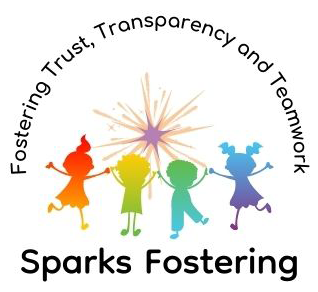My journey to getting an MBE and owning a fostering agency
8 years ago I was in my first fostering role (after 13 years of working in other children’s social care sectors), as a supervising social worker for a large Ofsted ‘Outstanding’ fostering provider in Manchester. I was one of three new starters, and the only Asian Muslim member of staff in the team. The team meetings and training were in a pub: Nobody asked me how I felt about that and as a new member of staff I didn’t want to mention that they should check with Muslim staff if they mind meeting in a pub. Honestly, I would have said it’s fine, I eat in places that sell alcohol; but still, it would be appropriate to ask out of religious sensitively because many Muslims wouldn’t be comfortable with it. Or arguably, they should check with everyone because how would they know if any staff members are recovering alcoholics? I excused the oversight and focused on my work, grateful for the opportunity to work in the fostering sector.
I’m very comfortable talking about my religion and always have been, but I was particularly uncomfortable when one of my fostering colleagues in that agency questioned me about why ‘all Subways are halal’. I explained that it’s only 5% that are halal. She went on to say that ‘as someone who is British, I should be able to go into any Subway and eat what I like’. It was too awkward to point out that I’m also British and I choose to eat halal, so instead I pointed out that Subway is a franchise and has some halal branches because there is a business case for it. This was evidently not a satisfactory answer for her. The team watched us quietly; my line manager and the team manager seemingly having nothing to say. At that point perhaps I should have been alerted to problems, but I wasn’t. That is the nature of discrimination, we make excuses, we minimise, we avoid the discomfort and pretend everything is fine. Actually, in hindsight, I believe it was interactions like that which made me the ’outsider’ and it didn’t matter what I said or did, the team didn’t want me to succeed. Objectively speaking, I was unquestionably outperforming my peers who started at the same time as me, and was receiving less support; however, this is not relevant when someone isn’t liked in the team – everyone wants good team dynamics, and that isn’t possible for ethnic minorities in racist teams. My colleagues were nice to my face, but I would soon come to learn that I wasn’t liked – again, this is the nature of discrimination – racist people are nice to our faces, but they don’t trust us.
My experiences of discrimination didn’t end there. I had attended management training courses led by the then-CEO of a large Muslim charity, who had a personal drive to increase numbers of Muslim foster carers. He offered that the charity would recruit Muslim foster carers for the fostering agency – a fantastic opportunity for me and for the agency – he literally said the charity would vet applications and send them ALL to the agency, at NO COST. I was so excited, thinking I would bring in the highest number of new fostering applications to the agency. The agency said no. No explanation, just said no. At this point I resigned, and a few months later the charity asked me to set up and run the recruitment project for them. Long story short: I secured £200,000 funding from the Department for Education to run the project; I played a key role in publishing research by the ‘British Board of Scholars and Imams’, who concluded that adoption and fostering are ‘communal obligations’ for Muslims; and I got an MBE for the success of the work. As someone with very strong faith, I believe that Allah had guided me to greater things after I was treated unjustly.
My next jobs were as a manager in a local authority fostering team, as a quality assurance manager in an independent fostering agency, and then as a registered manager for another fostering agency. The local authority team was generally toxic, and I had been told that ethnic minority staff who previously held my post had quit, saying they had experienced racist bullying – I believe it, the social workers were awful to work with.
Then I decided to set up my own agency. When I applied to register my agency with Ofsted, they initial listed 13 reasons why they planned to reject my registration. I wrote to them to explain (in 30 pages of representations) that I had already exceeded regulatory requirements so they are legally obligated to register the agency. I was prepared to go to tribunal to defend my case, but thankfully Ofsted agreed with my representations and registered the agency without any further disagreements or conditions. While reflecting on Ofsted’s justifications for initially refusing my registration, I started thinking about the fact that I would become the ONLY Asian and/or Muslim registered manager of the 33 fostering agencies based in the North-West. I have since found out that of 52 Ofsted inspectors in the North West, 2 are Black, 2 are ‘unknown/undisclosed’, and the rest are White. 8.4% of the population is Asian, which means that if Ofsted had sufficient representation of Asians, they would have 4 Asian inspectors. I’m not saying that Ofsted discriminated against me (I couldn’t know that), but I am saying that being a brown face of Muslim heritage amongst peers who are disproportionately White is challenging – not only for me, but also for less senior ethnic minority staff, for foster carers and for children in care who struggle to have their voices heard regarding their experiences of discrimination.
My advice to anyone who is facing discrimination and wants to progress in their career is to learn the policies, procedures and regulations in your sector of work. Knowledge really is power in this situation. But sometimes the best option is to move on – apply for other work, look for promotions, get more experience, aim to be better than your peers and keep going. I don’t try to change the culture of organisations myself – one of my favourite mottos is to ‘only help those who want help’ – invariably people who are racist don’t want your advice about how to be less racist. And finally, for those who have faith, ask God/Allah (or whatever greater power you believe in) for guidance and be assured that you will be guided to something that is better for you.
To read about Tay’s work with Sparks Fostering, see www.SparksFostering.org









